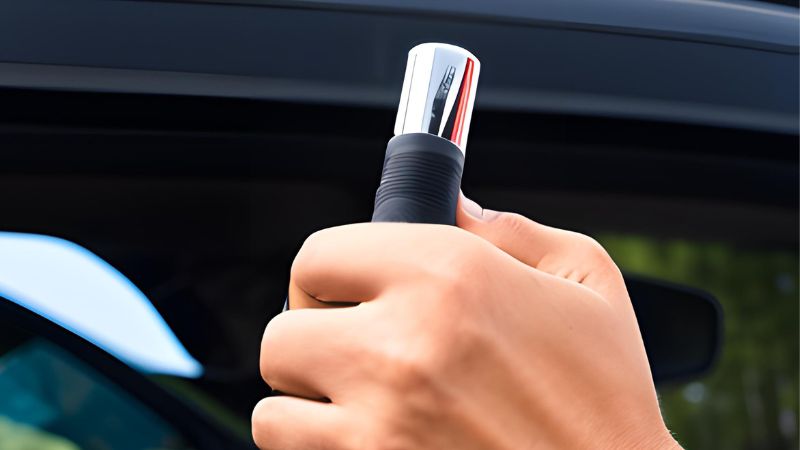Introduction
So, you just got an oil change. You think everything is good to go, and you take your car out for a drive. But to your surprise and dismay, you notice that the car stalls or behaves weirdly after the oil change.
It’s a common problem that many motorists face and could make you feel frustrated if not addressed quickly. To help solve this issue, let’s first understand why it happens. What are the symptoms that you should look out for? And what are the potential causes of this issue?
In this article, we’ll provide some help and advice on why your car stalls after an oil change and how to prevent it from happening again in the future. Read on for more!

Why Is Your Car Acting Weird After an Oil Change
If your car is stalling after an oil change, you’re probably wondering why it’s behaving this way. The truth is, it could be a few different things. To help you narrow down the potential causes, here are some of the symptoms you should watch out for:
- Jerks or stalls when accelerating or driving
- Chugging and sputtering engine
- Abnormal rattling or banging noises from the engine
- The oil pressure light is flashing
- Check engine light remains on even after an oil change
These signs point to several underlying issues, including dirty air filters, faulty spark plugs, and ignition wires, incorrect oil type being used, or blocked fuel injectors just to name a few. In any case, if your vehicle begins to show any of these symptoms after an oil change, take it in to be inspected right away so that proper action can be taken to protect your engine.
Why Is Your car stalling after oil change?
Low engine oil car shaking is a notable issue that many car owners face. It’s important to understand that when you get an oil change, the mechanic likely replaces the old oil with new oil that has a different viscosity. This means that, as the engine runs, if the new oil isn’t able to adhere properly to the surfaces of your engine as it should, it can lead to a chugging sound.
When you drain the old oil from your car, some of the “sludge” built up over time can also drain out, especially if you haven’t changed your oil in a while. This sludge can block up small passages in the engine and cause pistons and cylinders not to fire or ignite properly, leading to a chugging sound.
How To Know That Your Car is Chugging After an Oil Change
These symptoms can all point toward your car chugging after an oil change:
- The engine light stays on
- A decrease in the quality of acceleration
- The engine is louder than it normally is
- The smell of burning oil coming from under the hood
- Noticeable decrease in fuel economy
If you’re noticing any of these signs – especially soon after getting an oil change – then it’s probably best to have your mechanic look at it.
What Causes a Car to Jerk When Accelerating After an Oil Change?
It’s pretty common to experience a car jerking when accelerating after an oil change, and there are a few possible causes.
- Dirty Oil Filter: An old, dirty oil filter can make it hard for the vehicle to get the right amount of oil pressure. This leads to the car jerking when accelerating because it’s not getting enough fuel or spark to drive smoothly.
- Low-Grade Oil: Every engine has a minimum level of viscosity (thickness) that it needs to function properly. If you use low-quality oil that doesn’t meet this level, your engine won’t run efficiently and can cause jerking when accelerating.
- Incorrect Amount of Oil: If too much or too little oil is added during an oil change, your car may experience problems with acceleration or stalling which could lead to jerking when accelerating.
- Faulty Spark Plugs: Faulty spark plugs can lead to misfires which will cause your engine to jerk when accelerating and potentially stall out altogether if the spark plug isn’t fixed quickly.
The best way to avoid these issues is by performing regular preventative maintenance and using quality parts for repairs and oil changes. Checking for correct levels of viscosity, inspecting the condition of the spark plugs, and replacing dirty oil filters are some important steps you can take to reduce the chances of your car stalling or jerking after an oil change.
Read About Some Best Oil filter
What Causes a Car to Sputter After an Oil Change?
Once you’ve identified that your car is sputtering after oil changes, it’s time to get to the bottom of what could be causing it. Here are some of the most common causes of this type of problem:
1. Old Spark Plugs
If your spark plugs are old and worn out, they won’t be able to provide the jolt of electricity needed for your engine to run smoothly. Without new, functioning spark plugs, your engine won’t be able to drive at its optimal level and can cause stalling or sputtering after an oil change.
2. Old Filters
Your engine filters need frequent changing to keep debris, dirt, and other particles from entering your engine and clogging it up. When these filters get too dirty, they can become clogged and cause your car to sputter after an oil change. You’ll want to make sure these filters are changed frequently and as per recommended guidelines by your car manufacturer.
3. Low Oil Level
If you don’t fill up the oil in your engine correctly after an oil change, you can experience stalling or sputtering issues as a result of low oil levels in the system. The best way to avoid this is by double-checking the oil level both before and immediately after an oil change.

Steps to Take to Prevent Stalling Issues
To wrap things up, let’s look at a few ways to prevent a car from stalling after an oil change. Whether you do it yourself or take it to the shop, these tips will help make sure you don’t run into any stalling issues.
- Make Sure the Air Filter is Clean: If an engine doesn’t have enough air going in, the fuel won’t be combusting properly. This can cause problems with stalling, so make sure to check your air filter and replace it if necessary.
- Check the PCV Valve: The positive crankcase ventilation (PCV) takes gasses out of the crankcase and prevents a buildup of vapors in the oil. Checking this valve every now and then can keep your car running better for longer.
- Replace Fuel Filters: A dirty fuel filter might not cause a car to stall directly, but it can cause your vehicle to run oddly which could then lead to stalling issues when you least expect it.
- Pay Attention to Warning Lights: Warning lights on your dashboard are important indicators of problems with your engine or other components that might lead to stalling later on down the road. It’s best to address these issues as soon as possible before they become bigger issues that lead to stalling down the line.
FAQs
Q. Can low oil cause the car to shake when accelerating?
Low oil can cause a car to shake when accelerating. When the oil level is low, the car’s engine has to work harder, which can cause the car to vibrate or shake. If the oil level is too low, it can cause engine damage and cause your vehicle to shake even more when accelerating. It is important to regularly check the oil level in your vehicle to ensure it is not too low.
Q. Can too much oil cause sputtering?
When there is an excessive amount of oil in the engine, it can create an overly rich air-to-fuel ratio. This can cause the engine to misfire and sputter due to the excessive amount of oil in the combustion chamber. Also, too much oil can cause the engine to run hot and can cause damage to the internal components.
Q. Why is my car showing low oil pressure at idle after an oil change?
The most likely cause of a car showing low oil pressure at idle after an oil change is that the oil filter was not changed or that the oil was not filled to the correct level. Additionally, a low oil pressure reading could be due to a blocked oil filter, a faulty oil pump, a worn engine bearing, or a clogged oil pickup tube.
Conclusion
Car stalling after an oil change is a common problem, but it doesn’t have to be a cause for worry. If your car is acting weird or chugging, it’s time to take a closer look at the cause. Following the prescribed oil change intervals and ensuring proper installation can help avoid serious engine damage and associated repair costs.
If you experience any of the above symptoms, take it to a qualified car mechanic for a professional opinion. With the right help and advice, you can have peace of mind that your car will continue running optimally.
Read Also: Will putting oil in my car make it start?

